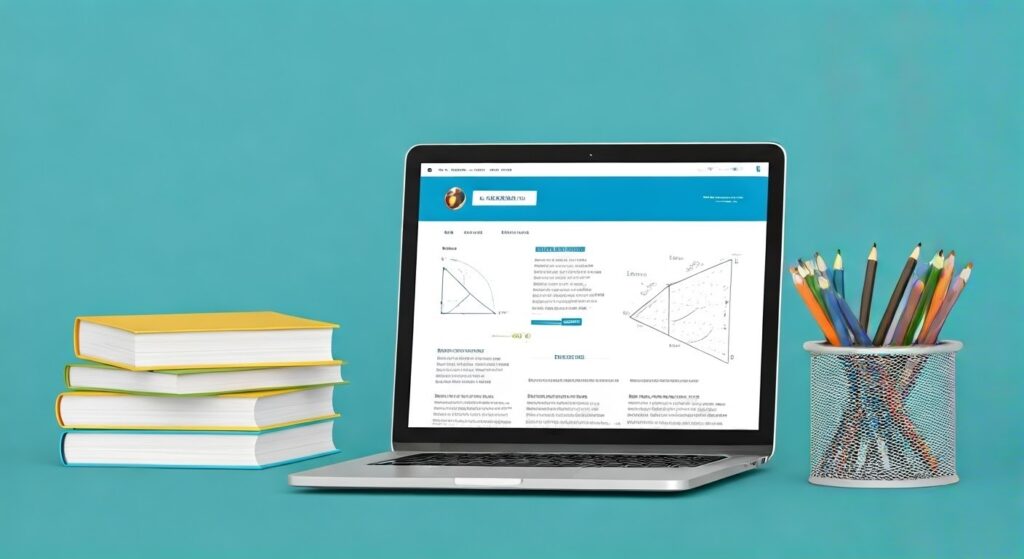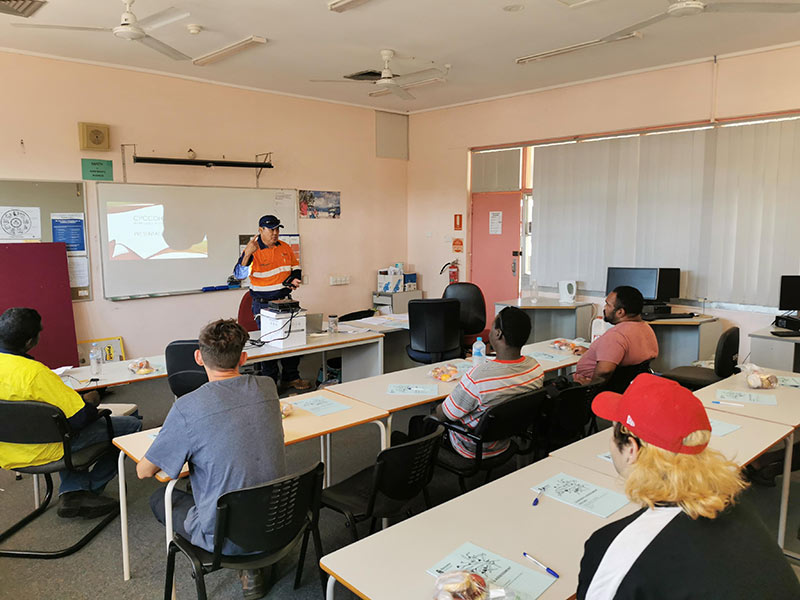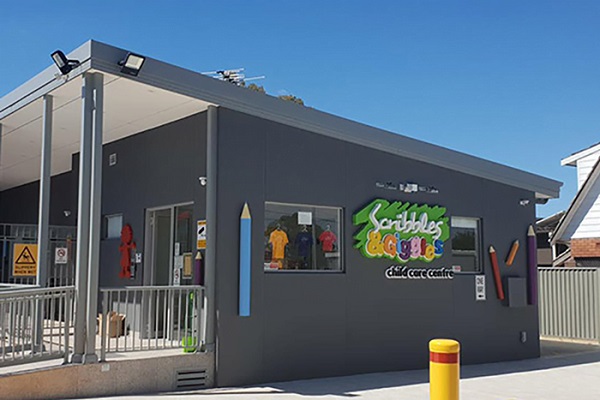by admin | Sep 26, 2025 | Education
Learning how to give first aid isn’t just necessary for work; it’s a skill that helps people, families, and groups at all stages of life. Being able to act calmly and successfully in an emergency is very important for everyone, from little kids learning the basics of safety to adults making sure they follow the rules at work. When people take a Darwin first aid course, they learn the skills and gain the confidence to help others when it means the most. These skills never become less important; in fact, they become more important every year.
Early Awareness in Childhood
Children are naturally curious, and that curiosity sometimes leads to bumps, scrapes, and minor injuries. Teaching kids the basics of first aid can give them a sense of responsibility and awareness. Even simple actions—like knowing when to call for help, understanding how to clean a cut, or recognising dangerous situations—lay the foundation for lifelong safety practices. While young children may not yet be ready for advanced training, exposure to the principles of first aid prepares them to handle small situations with confidence and seek adult support when needed.
Adolescents and Teenagers: Building Confidence
Teenagers are at a stage where independence grows, and so does their exposure to potential risks. High school sports, driving, and part-time jobs can all bring situations where first aid knowledge becomes essential. By enrolling in a first aid course Darwin offers, teenagers can gain practical experience in responding to common injuries, fainting, or sprains. Learning CPR at this age is especially valuable, as it equips young people with the ability to act in life-threatening emergencies—whether at school, on the sports field, or at home.
Adults: Essential Skills for Work and Family
For adults, first aid training is often both a professional requirement and a personal responsibility. Many workplaces expect employees to complete courses that cover CPR, wound care, and emergency response. Beyond the office, adults are also responsible for family safety. Parents, for instance, benefit greatly from knowing how to respond to choking, burns, or sudden illness in children. Obtaining a CPR certificate Darwin professionals recognize ensures adults are equipped to handle emergencies both in and outside the workplace.
Older Adults: Adapting Skills to Changing Needs
As people age, health conditions such as heart disease, diabetes, or reduced mobility can increase the chances of medical emergencies. Older adults who refresh their first aid knowledge are better prepared to respond quickly to issues such as falls, cardiac events, or diabetic complications. The ability to administer CPR or use an automated external defibrillator (AED) can make the difference between life and death for someone in their own age group or community. Lifelong learning in first aid ensures that these vital skills remain sharp and effective well into later years.
The Community Impact of First Aid Training
When more people in a community are trained in first aid, the collective safety of that community increases. Emergencies can happen anywhere—at home, in public spaces, or during social gatherings—and often, the first responder is not a medical professional but an ordinary bystander. Having more individuals complete a Darwin first aid course helps create a culture of preparedness and care. Trained individuals are not only capable of assisting in emergencies but also serve as role models for others, encouraging a ripple effect of awareness and responsibility.
A Lifelong Investment in Safety
First aid is not a skill that fades in importance over time. Whether you are a student, a parent, a worker, or a retiree, the ability to respond effectively in a medical emergency is empowering. By taking the time to enrol in a first aid course Darwin provides, or by obtaining a CPR certificate Darwin employers and organisations recognise, individuals can ensure they are always prepared to act when every second counts.
First aid training is more than a box to tick for compliance—it is a gift that benefits people across all ages. The knowledge gained is not just for today but remains relevant for a lifetime, ensuring that no matter the situation, you are ready to step forward and make a difference.

by admin | Jul 21, 2025 | Education
In today’s rapidly evolving global market, the demand for skilled supply chain professionals has never been higher. As businesses strive to enhance efficiency, resilience, and sustainability, the role of supply chain experts becomes increasingly crucial. This blog post explores the burgeoning demand for supply chain professionals and how a Certificate III in Supply Chain Operations can prepare you for a rewarding career in this dynamic field.
The Rising Demand for Supply Chain Professionals
The supply chain industry is experiencing a significant transformation, driven by advancements in technology, shifting geopolitical landscapes, and the increasing need for sustainable practices. According to recent studies, the demand for logistics professionals is expected to rise by 18% by 2033. This surge is attributed to several factors:
- Technological Advancements: The integration of artificial intelligence (AI) and automation in supply chain management is revolutionising the industry. AI-driven systems enhance efficiency, accuracy, and responsiveness by predicting disruptions, optimising inventory management, and automating order processing. For instance, AI can analyse vast amounts of data to forecast demand more accurately, reducing the risk of overstocking or stockouts.
- Globalisation and Geopolitical Shifts: As companies expand globally, they face complex challenges that require skilled professionals to navigate. Geopolitical tensions and trade policies necessitate a robust understanding of international logistics and supply chain strategies. Professionals must be adept at managing cross-border logistics, understanding customs regulations, and mitigating risks associated with geopolitical instability.
- Sustainability and Green Supply Chains: With growing awareness of environmental issues, businesses are prioritising sustainable practices. Supply chain professionals are needed to implement green strategies, ensuring compliance with regulations and meeting consumer expectations. This includes optimising transportation routes to reduce carbon emissions, sourcing eco-friendly materials, and adopting circular economy principles.
- Resilience and Risk Management: The COVID-19 pandemic highlighted the vulnerabilities in global supply chains. Companies are now focusing on building resilient supply chains that can withstand disruptions. This shift from efficiency to resilience requires professionals who can manage risks and ensure continuity. Strategies such as diversifying suppliers, increasing inventory buffers, and investing in digital supply chain technologies are becoming essential.
How a Certificate III in Supply Chain Operations Prepares You
A Certificate III in Supply Chain Operations is designed to equip students with the essential skills and knowledge needed to thrive in the supply chain, logistics, and warehousing industries. Here’s how this qualification can set you on the path to success:
- Comprehensive Skill Development: The Certificate III covers a wide range of topics, including receiving and despatching goods, stock control, operating specialised equipment, and using information technology in the workplace. These skills are crucial for various roles within the supply chain sector. For example, understanding inventory management systems can help you maintain optimal stock levels and reduce carrying costs.
- Practical, Hands-On Training: Many Certificate III programmes offer practical training in simulated business environments. This hands-on approach allows students to apply their skills in real-world scenarios, gaining confidence and experience. Practical training might include operating forklifts, managing warehouse operations, and using logistics software, providing a solid foundation for entry-level positions.
- Industry-Relevant Curriculum: The curriculum is tailored to meet the needs of the industry, ensuring that graduates are well-prepared for the demands of the job market. Topics such as workplace safety, chain of responsibility, and forklift operation are integral parts of the course. Understanding workplace safety protocols is essential for preventing accidents and ensuring a safe working environment.
- Career Opportunities and Advancement: With a Certificate III, you can pursue various roles such as warehouse operator, contract administrator, and logistics coordinator. The qualification also provides a foundation for further studies and career advancement in supply chain management. As you gain experience, you can move into higher-level positions such as supply chain analyst, operations manager, or procurement specialist.
- Flexibility and Accessibility: Many institutions offer flexible learning options, including online courses, allowing you to balance your studies with other commitments. This accessibility makes it easier for individuals to upskill and enter the supply chain industry. Online learning platforms often provide interactive modules, virtual simulations, and access to industry experts, enhancing the learning experience.
Real-World Applications and Success Stories
To illustrate the impact of a Certificate III in Supply Chain Operations, let’s look at some real-world applications and success stories:
- Case Study: Efficient Warehouse Management: A graduate of the Certificate III programme implemented a new inventory management system at their workplace, reducing stock discrepancies by 30% and improving order fulfilment times. This not only enhanced customer satisfaction but also reduced operational costs.
- Career Progression: Another graduate started as a warehouse operator and, within three years, advanced to a logistics coordinator role. Their comprehensive understanding of supply chain processes and hands-on experience gained during the Certificate III programme were instrumental in their career growth.
Conclusion
The growing demand for supply chain professionals presents a golden opportunity for those looking to enter this dynamic field. A Certificate III in Supply Chain Operations provides the essential skills and knowledge needed to succeed in various industry roles. Whether you are starting your career or seeking to advance, this qualification can open doors to exciting opportunities in one of the world’s most critical industries.
Investing in your education and gaining practical experience through a Certificate III can set you on a path to a fulfilling and prosperous career in supply chain operations. As the industry continues to evolve, the need for skilled professionals will only increase, making now the perfect time to embark on this journey.

by admin | Mar 18, 2025 | Education
Key Highlights
- Flexible scheduling options to accommodate busy lives, giving peace of mind.
- Access to expert tutors across Australia, ensuring quality instruction.
- Flexible scheduling options to accommodate busy lives, giving peace of mind.
- Interactive tools and resources to enhance the learning experience.
- Comprehensive support for a wide range of subjects, from math and science to language arts and test preparation.
Introduction

Benefits of Subject-Specific Online Tutoring
Subject-specific online tutoring has many advantages over traditional tutoring. Students can find highly qualified tutors who specialize in the subjects they need help with. This means students get focused and effective instruction.
Also, online tutoring is very flexible. Students can set up sessions when it works best for them, catering to each child’s needs. This means no travel and fits well with busy lives. The personal touch, along with interactive tools and the highest quality digital resources, makes learning fun and helps meet different learning styles. Importantly, the most important thing is ensuring that each child feels supported in their unique learning journey.
Personalised Learning Paths for Every Student
One of the best things about subject-specific online tutoring is that it can create personal learning plans. The right tutor, especially a qualified teacher, will take the time to learn about a child’s needs, strengths, and weaknesses, providing different ways to address these aspects. This individual approach helps make sure that tutoring sessions focus on the areas where a student needs the most help.
By paying attention to how each person learns and their speed, online tutors can make a supportive and positive learning space without the presence of classmates. This close attention helps students feel more confident and grow in their understanding of the subject.
When students feel supported and understood, they are more likely to connect with the material and reach their academic goals through a holistic approach. For example, an ITIL 4 course could be customized to suit a learner’s pace and focus on areas like IT service management, ensuring better engagement and comprehension. Subject-specific online tutoring gives the personal attention needed to encourage a love of learning and success in school.
Access to Expert Tutors Across Australia
Finding good tutors in Australia, including tutoring on the Gold Coast, in Canberra, and in Adelaide, is easy with online platforms like KIS Academics. They have many experienced educators. Students can connect with expert maths tutors and more. These tutors know their subjects well and love teaching, which helps ensure high-quality lessons.
With these online platforms, students can find high school tutoring from anywhere in Australia, including Sydney and Perth. This means they don’t have to worry about where they live. They can choose from a larger number of special tutors.
No matter if a student lives in a big city or a remote area, online tutoring means they can get the best educational help possible.
Flexible Scheduling to Accommodate Busy Lives
Online tutoring understands that students today have busy lives. They balance school, activities, and family. Flexible scheduling is a key part of online tutoring. It lets students learn at their own pace and pick times that fit easily into their lives.
Gone are the days of strict tutoring times and the hassle of going to appointments. Now, with online tutoring, students can log in from the comfort of home when it works best for them.
This flexibility helps students get the support they need without adding more stress to their busy schedules.
The Role of Interactive Tools and Resources in Online Learning

Online tutoring platforms are different from regular tutoring. They use interactive tools and resources to make learning more fun. Features like virtual whiteboards, screen sharing, and quizzes change how students learn.
These tools help tutors and students work together in real-time, making lessons more lively. Plus, having access to digital resources, like practice exercises and educational videos, gives students many chances to strengthen their understanding and build important skills, truly serving as a game changer in the learning process.
Leveraging Multimedia Content for Engaging Lessons
Modern online tutoring platforms use interactive tools and multimedia content to create fun lessons. They include videos, animations, and simulations. This helps tutors reach different learning styles and makes tough ideas easier to understand.
For example, visual learners may learn better by watching a video about a math idea. Auditory learners might understand the material more clearly through audio recordings. Using multimedia content changes the learning experience and makes it more exciting for students.
When students are engaged and interested, they can understand and remember their lessons much better.
Utilizing Virtual Labs for Science Experimentation
Science subjects often require students to do practical experiments. This can be tough in a regular online classroom. Virtual labs help with this problem. They give high school students a chance to do experiments and learn about science in a safe digital space.
These interactive simulations are like real labs. They let students change different factors, gather data, and look at the results. This helps them understand scientific ideas better. With a hands-on and curious learning experience, virtual labs change the way science is taught.
Students can discover scientific ideas in a fun and safe place. They develop important skills like critical thinking and problem-solving. These skills are vital for success in STEM fields.
Exploring Online Tutoring Resources for Math, Science, and Beyond

Online tutoring is great for STEM subjects, but it helps in many other areas too. If a student needs help with essay writing, learning a new language, or preparing for tests, many specialized online tutoring resources can help.
These resources offer focused teaching and support. They assist students of all ages and levels in reaching their learning goals. Online tutoring platforms see that learners have different needs. They provide complete solutions to tackle academic challenges in various subjects.
Comprehensive Guide to Mastering Mathematics
Mathematics can be tough for many students. However, online tutoring can help students master math skills, and after the first lesson, many students notice significant improvements. Online maths tutors offer learning that is just right for each student. They break down tricky ideas into easier steps.
With interactive tools and feedback just for them, students can build a strong base in math. They will also grow their problem-solving skills and feel more confident. For some students, it might even be the first time they feel engaged with math. Online resources give access to practice quizzes, worksheets, and video lessons. This helps students strengthen what they learn and check their progress.
This all-around approach helps students get past their fear of math. It helps them succeed in this important subject.
Navigating the World of Online Science Tutoring
Online science tutoring helps students explore the exciting world of science in a fun and engaging way. Skilled tutors assist students with tough scientific ideas, helping them understand the subject better.
Virtual labs and simulations give students practical learning experiences. These tools let students use what they know and build important thinking skills. If a student needs help with biology, chemistry, physics, or any other science topic, online tutoring gives them access to expert help and support.
Students can learn at their own pace. They can ask questions anytime and get personal feedback. This way, the learning process becomes more effective and enjoyable.
Enhancing Language Arts Skills Through Digital Platforms
Online tutoring is not just for STEM subjects. It also helps students improve their language arts skills. Digital platforms offer many resources and tools for primary school tutoring and beyond. They help students grow in reading, writing, and communication.
Online tutors can help with grammar, vocabulary, reading comprehension, and essay writing. They give personalized feedback and guidance. Interactive exercises, like online quizzes and writing prompts, help students practice their skills. This supports them in building confidence.
Whether a student needs help with creative writing, persuasive essays, or literary analysis, online tutoring resources are here to help. They can improve their language arts skills and develop a love for language.
Discovering Resources for Advanced Placement (AP) Subjects
Explore advanced placement (AP) subjects with online tutoring resources made just for you. Find lots of support to help you understand tough high school topics. If you need help in math, science, or other subjects, you can connect with quality tutors who fit your learning speed. You will get individual attention and a learning plan to improve your academic performance. Enjoy the convenience of online tutoring from the comfort of your home, with experienced teachers helping you succeed.
Tailored Tutoring for Standardized Test Preparation
Standardized tests, like the HSC exams, are very important in a student’s education. Online tutoring platforms understand how vital these exams are. They offer personalized tutoring programs. Skilled tutors help students with the knowledge and practice needed to do well on these important tests.
For example, HSC tutoring programs can focus on parts of the exam, such as English, math, or science. They give students specific help and practice materials. With custom support and solid test-taking strategies, online tutoring helps students feel confident as they take standardized tests. This way, they can reach the scores they want.
Conclusion
In conclusion, online tutoring that focuses on specific subjects gives students in Australia a custom learning experience. Students can connect with the perfect tutor and expert private tutors and choose a schedule that works for them, provided they have a stable internet connection. The interactive tools, including multimedia content and virtual labs, make learning fun and effective. Whether you want to improve in mathematics, explore science, or develop language skills, online resources meet many needs. Using these special resources can help students do well on tests and advance in their studies. Join the online tutoring world to improve your education. If you need reliable online tutoring in Australia, check out the options to reach your full academic potential.
Frequently Asked Questions
How do I find a reliable online tutor in Australia?
Finding a good online tutor in Australia begins on sites like KIS Academics, where you can explore options for private tutoring. Here, you can look through different profiles and book a free first session. This helps you find the right fit. Communication is important, and a focus on students will also give you a great experience.
How can parents or teachers track a student’s progress when using subject-specific online tutoring resources?
Many online platforms give regular progress reports via email. These reports show a student’s performance, areas to improve, and the achievement of learning goals. This keeps parents and teachers informed during the tutoring process.
How can online tutoring resources help students improve their understanding of complex subjects like math and science?
Online tutors provide individual attention by giving simple explanations and using fun tools. They help make tough subjects like math and science easier to understand. This way, students can grasp challenging material more easily.

by admin | Oct 2, 2024 | Education
Understanding the White Card Course
White Card training, formally known as the Construction Induction Training, is a mandatory certification for individuals looking to work in the construction industry in Australia. This course is designed to provide workers with essential knowledge about health and safety regulations, ensuring that they are prepared to recognize and mitigate potential hazards on construction sites. The White Card serves as proof that a worker has completed the necessary training and understands the importance of workplace safety.
The Legislative Background
In Australia, safety regulations in the construction industry are governed by both federal and state laws. The introduction of the White Card course arose from the need to standardize safety practices across various states and territories. It aligns with the Work Health and Safety (WHS) Act and regulations, which aim to protect the health and safety of workers. Each state and territory may have slight variations in their requirements, but the fundamental principles of the White Card training remain consistent nationwide.
Who Needs a White Card?
The White Card is required for anyone who wishes to work on a construction site, including:
Labourers: Those involved in manual work, including site preparation and demolition.
Trade Workers: Electricians, plumbers, carpenters, and other skilled tradespeople.
Supervisors and Managers: Individuals overseeing construction projects must also be certified.
Students and Apprentices: Those training or gaining experience in the construction field.
Obtaining a White Card is often a prerequisite for employment in the construction sector, making it crucial for job seekers in this field.
Key Components of the White Card Training
The White Card course covers various topics critical to maintaining a safe working environment. Some of the key components include:
1. Understanding Hazards and Risks
Participants learn to identify common hazards on construction sites, such as falls, equipment failures, and exposure to harmful substances. The course emphasizes risk assessment techniques, enabling workers to evaluate potential risks and implement appropriate control measures.
2. Personal Protective Equipment (PPE)
The training provides comprehensive information on the types of PPE required on construction sites, including hard hats, gloves, goggles, and safety boots. Workers are educated on the correct usage, maintenance, and limitations of PPE to ensure their effectiveness in preventing injuries.
3. Emergency Procedures
Understanding how to respond in emergencies is a crucial aspect of the White Card training. Workers are trained in emergency protocols, including evacuation procedures, first aid, and how to report incidents effectively. This knowledge is vital for minimizing risks and ensuring a prompt response during emergencies.
4. Workplace Safety Culture
The course fosters an understanding of the importance of safety culture within organizations. Workers learn how to promote safety among their peers and the significance of reporting unsafe practices or conditions. This proactive approach contributes to a safer working environment for all.
If you’re looking to enhance your workplace safety culture and ensure compliance with Australian regulations, consulting with experienced Melbourne safety consultants can provide valuable insights and practical solutions tailored to your business needs.

The Importance of White Card Training in Australia
Completing the White Card course offers several advantages, both for workers and employers.
1. Enhanced Employment Opportunities
For job seekers, having a White Card can significantly enhance their employability in the construction industry. Many employers require this certification as a minimum standard, making it a valuable asset when applying for jobs. It demonstrates a commitment to safety and an understanding of industry regulations.
2. Increased Workplace Safety
By equipping workers with the necessary knowledge and skills to identify hazards and respond to emergencies, the White Card training contributes to a safer workplace. Fewer accidents mean not only a more productive workforce but also reduced costs associated with workplace injuries and compensation claims.
3. Legal Compliance for Employers
For employers, ensuring that all workers possess a valid White Card is essential for legal compliance. Failure to meet these requirements can result in significant penalties and liabilities. Providing White Card training for employees is an investment in their safety and the company’s reputation.
The Process of Obtaining a White Card
Getting a White Card involves several straightforward steps:
1. Choose a Registered Training Organisation (RTO)
Select a reputable RTO that offers White Card training. It’s essential to ensure that the organization is accredited and recognized by the relevant authorities in your state or territory.
2. Complete the Training
The training is typically delivered through a combination of online modules and in-person sessions. Participants must complete the required coursework and assessments to demonstrate their understanding of the material.
3. Pass the Assessment
At the end of the course, participants must pass an assessment to demonstrate their knowledge and competency in workplace safety practices.
4. Receive Your White Card
Upon successful completion of the training and assessment, participants will receive their White Card, which is valid across Australia. It’s essential to keep this card on hand while working on construction sites.
Conclusion
The importance of White Card training in Australia cannot be overstated. It plays a crucial role in enhancing workplace safety, ensuring legal compliance, and increasing employment opportunities within the construction industry. As construction sites can be hazardous environments, equipping workers with the knowledge and skills to identify and mitigate risks is essential.
For anyone considering a career in construction, completing the White Card course is a vital step toward ensuring a safe and successful future in this dynamic industry.

by admin | Jul 26, 2024 | Education
Opening a childcare centre in New South Wales (NSW) is a significant and rewarding undertaking, but it involves several key qualifications and regulatory requirements. With the advent of digital learning platforms, aspiring childcare centre owners can now leverage online resources to acquire the necessary credentials and knowledge. This article explores how you can utilise these online resources to effectively prepare for and achieve your goal of opening a childcare centre in NSW.
1. Understanding the Requirements
Before diving into online resources, it’s crucial to comprehend the qualifications needed to open a childcare centre in NSW. The NSW Department of Education outlines several requirements:
- Educational Qualifications: To manage or own a childcare centre, you typically need a diploma or higher qualification in early childhood education and care. The most common qualifications include a Diploma of Early Childhood Education and Care or a Bachelor of Early Childhood Education.
- Experience: Practical experience in childcare settings is essential. This involves working under supervision and may include internships or placements in childcare centres.
- Regulatory Compliance: Compliance with the National Quality Framework (NQF) is mandatory. This includes adhering to the National Law and National Regulations and obtaining the necessary licenses and certifications.
2. Exploring Online Educational Courses
Online education provides a flexible and efficient pathway to gaining the qualifications required for running a childcare centre. Here’s how you can make the most of online courses:
- Accredited Institutions: Enrol in online courses offered by accredited institutions to ensure the qualifications you earn are recognised. TAFE NSW and Open Universities Australia provide online diplomas and degrees in early childhood education. Ensure the course is accredited by the Australian Skills Quality Authority (ASQA) and meets National Quality Standard (NQS) requirements.
- Flexible Learning Options: Online courses offer flexibility, allowing you to balance your studies with practical work experience. Platforms such as Coursera and edX offer supplementary courses in early childhood education. While these platforms provide valuable knowledge, ensure they complement your formal qualifications.
- Financial Assistance: Investigate funding options and scholarships available for early childhood education. Government resources such as the Australian Government’s Department of Education can provide information on financial aid and scholarships to support your studies.
3. Gaining Practical Experience Online
Practical experience is crucial for running a childcare centre, and online resources can assist you in gaining this experience:
- Virtual Simulations: Some online programs include virtual simulations of childcare environments. These simulations can provide a realistic experience of managing childcare settings, helping you prepare for real-world challenges.
- Networking Opportunities: Use online networking platforms like LinkedIn to connect with professionals in early childhood education. Joining relevant groups and forums can help you find internships or job placements and gain insights from experienced professionals.
- Webinars and Workshops: Participate in online webinars and workshops to stay updated on industry trends and best practices. Many professional organisations and educational institutions offer webinars that can enhance your knowledge and skills.
4. Understanding Regulatory Requirements
Opening a childcare centre requires strict adherence to regulatory standards:
- National Quality Framework (NQF): Familiarize yourself with the NQF, which encompasses the National Law and National Regulations. The Australian Children’s Education & Care Quality Authority (ACECQA) website provides comprehensive resources and guidelines on the NQF.
- Licensing and Accreditation: The licensing process can be complex. The NSW Department of Education’s website offers detailed information on the application process, including requirements for childcare services. Ensure you understand all licensing requirements and compliance obligations.
5. Utilizing Online Business Resources
In addition to educational qualifications, managing a childcare centre involves business skills. Online resources can assist with this aspect:
- Business Planning Tools: Use online platforms such as Bplans to access business plan templates and guides. These tools can help you develop a detailed business plan outlining your centre’s vision, target market, financial projections, and operational strategies.
- Legal and Financial Guidance: Websites like LegalZoom and Australian business forums provide information on legal requirements, contracts, and financial management for starting and running a business. Ensure you understand the legalities involved in setting up and operating a childcare centre.
- Marketing and Branding: Create a professional online presence using tools like Canva and WordPress. These platforms can help you design a website, manage social media, and develop promotional materials to attract families to your centre.
6. Continuous Professional Development
The field of early childhood education is continually evolving. Engaging in ongoing professional development is crucial for maintaining high standards:
- Additional Online Courses: Enrol in supplementary online courses and workshops to stay current with industry developments. Many professional associations offer continuous education opportunities that can enhance your expertise and keep you updated on best practices.
- Industry Publications: Subscribe to online journals and publications related to early childhood education. Staying informed about the latest research and trends can help you adapt to changes and improve your centre’s quality of care.
Conclusion
Using online resources to obtain the qualifications needed for opening a childcare centre in NSW offers a flexible and accessible approach. By leveraging accredited online courses, gaining practical experience, understanding regulatory requirements, and utilising business resources, you can effectively prepare for and establish a successful childcare centre. Remember, while online resources are invaluable, combining them with hands-on experience and professional advice will ensure you meet the highest standards of care and education.
Disclaimer: This article provides general information and should not replace professional advice. Always consult with relevant authorities and professionals when pursuing qualifications and starting a business.

by admin | Jul 26, 2024 | Education
Organising an information day for registered training organisations (RTOs) is a valuable opportunity to connect with industry professionals, share knowledge, and foster collaborations. Whether you’re introducing new training programs, discussing industry trends, or showcasing your services, a well-planned information day can make a significant impact. Here’s a guide to help you create an engaging and successful event.
1. Define Your Objectives
Before diving into the logistical details, it’s crucial to establish clear objectives for your information day. Are you looking to:
- Introduce New Training Programs: Present innovative courses or certifications.
- Share Industry Updates: Provide insights into recent changes in regulations or industry standards.
- Facilitate Networking: Connect with other RTOs and professionals to build partnerships and collaborations.
By defining your goals, you’ll be able to tailor the event’s content and structure to meet your specific needs and expectations.
2. Choose the Right Venue
Selecting an appropriate venue is critical to the success of your information day. Consider the following factors when choosing your location:
- Capacity: Ensure the venue can comfortably accommodate your expected number of attendees. If you anticipate a large crowd, look for a venue with flexible seating arrangements.
- Accessibility: Choose a location that is easily accessible by public transport and has ample parking. Consider facilities for individuals with disabilities to ensure inclusivity.
- Technology: Verify that the venue has the necessary technology, such as projectors, microphones, and Wi-Fi, to support your presentations and interactive sessions.
A venue that reflects the professionalism and scope of your event will set the right tone and contribute to a successful day.
3. Plan the Agenda
A well-structured agenda is key to a smooth and engaging information day. Your agenda should include:
- Opening Remarks: Start with a welcome speech to set the stage and outline the day’s objectives.
- Keynote Speakers: Invite industry leaders or experts to deliver keynote speeches. These talks should provide valuable insights and set the tone for the event.
- Workshops and Breakout Sessions: Organise practical sessions on topics relevant to your audience. Workshops can cover areas such as new regulations, best practices in training, or the integration of technology in education. Breakout sessions allow for in-depth discussions on specific topics.
- Networking Opportunities: Allocate time for networking, where attendees can connect with peers and explore potential collaborations. Provide areas with seating and refreshments to facilitate informal conversations.
A balanced agenda with a mix of presentations, interactive sessions, and networking opportunities will keep attendees engaged and provide value throughout the day.
4. Engage with Interactive Elements
Interactive elements enhance attendee engagement and make the event more dynamic. Consider incorporating:
- Live Polls and Q&A Sessions: Use digital tools to conduct live polls or gather real-time feedback from the audience. Q&A sessions allow attendees to ask questions and engage directly with speakers.
- Panel Discussions: Host panel discussions featuring multiple experts on relevant topics. Panels offer diverse perspectives and encourage audience participation.
- Interactive Demos: If applicable, set up demonstration stations where attendees can experience new tools or technologies firsthand.
Interactive elements not only keep attendees involved but also foster a more collaborative and participatory atmosphere.
5. Promote Your Event
Effective promotion is essential to attract the right audience and ensure a successful turnout. Use a multi-channel approach to reach potential attendees:
- Email Campaigns: Send targeted invitations and follow-up reminders to your mailing list. Include key details about the event, such as date, time, venue, and agenda highlights.
- Social Media: Create event pages on platforms like LinkedIn, Facebook, and Twitter. Share regular updates, engage with followers, and encourage them to spread the word.
- Industry Networks: Leverage relationships with industry associations, other RTOs, and professional networks to promote the event. Consider partnerships or sponsorships to broaden your reach.
A comprehensive promotional strategy will help you build awareness and attract a diverse and engaged audience.
6. Hire Coffee Carts with Unlimited Coffee
Adding a touch of hospitality to your event can significantly enhance the attendee experience. Hiring premium coffee carts with unlimited coffee is a unique and effective way to achieve this. Here’s why it’s a great idea:
- Boosts Engagement: Providing coffee keeps attendees energised and attentive, leading to increased participation and interaction during sessions.
- Creates a Social Hub: Coffee carts naturally become gathering points where people can socialise and network. They offer a relaxed environment for informal discussions and connections.
- Enhances Experience: Offering high-quality coffee adds a touch of professionalism and care to your event, leaving a positive impression on attendees.
When selecting a coffee cart service, ensure they offer a range of options, including various types of coffee, teas, and dietary preferences such as decaf and plant-based milk. This consideration ensures that all attendees are catered to and enhances their overall experience.
7. Provide Informative Materials
Supporting your event with informative materials helps attendees retain and refer back to the key points discussed. Prepare materials such as:
- Brochures and Handouts: Create detailed brochures or handouts that summarise key information, speaker bios, and session highlights.
- Digital Resources: Offer digital copies of presentations, resources, or additional reading materials. Providing access to these resources online allows attendees to revisit the content at their convenience.
These materials not only reinforce the information shared during the event but also serve as valuable references for future use.
8. Follow Up
Post-event follow-up is crucial for maintaining engagement and gathering feedback. Consider the following steps:
- Send Thank-You Notes: Express appreciation to attendees, speakers, and sponsors. Acknowledging their contribution helps build positive relationships.
- Share Highlights: Provide a summary of the event, including key takeaways, photos, or recordings of sessions. This recap can be shared through email or social media.
- Gather Feedback: Use surveys or feedback forms to gather insights on what worked well and areas for improvement. This information is invaluable for planning future events.
Effective follow-up ensures continued engagement and provides insights to enhance future events.
Conclusion
Organising an information day for registered training organisations is a fantastic way to share knowledge, foster connections, and showcase your expertise. By defining clear objectives, selecting the right venue, planning a dynamic agenda, and adding a unique touch with coffee carts, you can create a memorable and impactful event. With thoughtful planning and execution, your information day will be a valuable experience for all participants.
If you have any more questions or need further assistance with your event planning, feel free to reach out. Happy organising!









